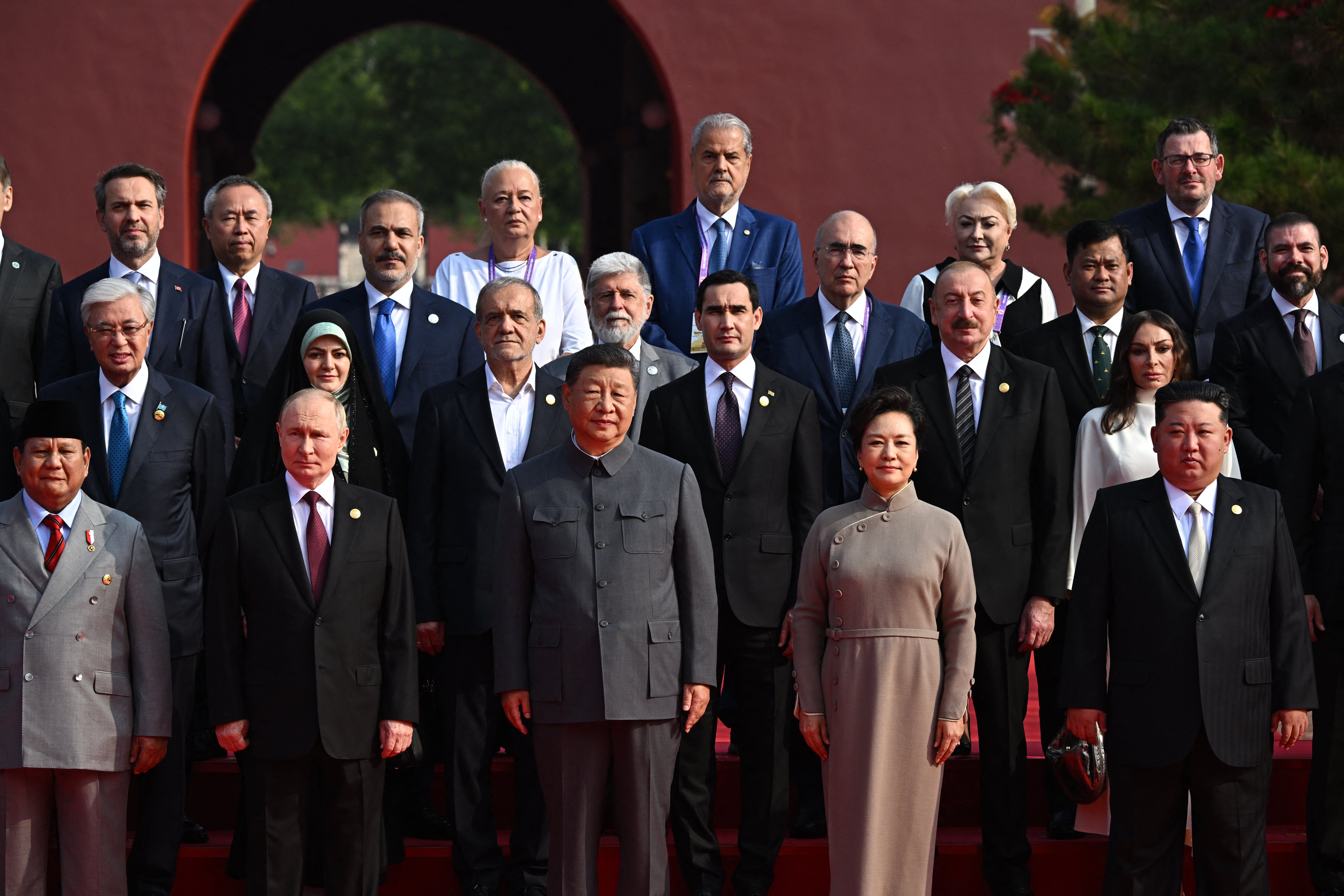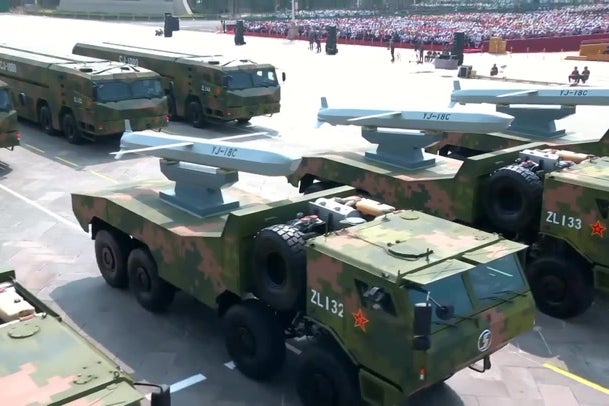Donald Trump has accused Xi Jinping, Vladimir Putin and Kim Jong-un of “conspiring” against the U.S. after the Chinese premier hosted his Russian and North Korean counterparts for a lavish military parade.
The Victory Day parade was held at Beijing’s Tianamen Gate to mark the 80th anniversary of Imperial Japan’s defeat in 1945 and the end of the Second World War, with Putin and Kim just some of the world leaders in attendance, much to the American’s chagrin.
“The big question to be answered is whether or not President Xi of China will mention the massive amount of support and ‘blood’ that The United States of America gave to China in order to help it to secure its FREEDOM from a very unfriendly foreign invader,” Trump wrote on Truth Social on Tuesday evening, alluding to the Pacific campaign fought by U.S. soldiers against Japan.
“Many Americans died in China’s quest for Victory and Glory. I hope that they are rightfully Honored and Remembered for their Bravery and Sacrifice!
“May President Xi and the wonderful people of China have a great and lasting day of celebration. Please give my warmest regards to Vladimir Putin, and Kim Jong-un, as you conspire against The United States of America.”
The Chinese leader used the occasion to present a series of new weapons of war in a clear show of might and drew a direct parallel with the past in a speech in which he said: “Today humanity again has to choose between peace and war.”
Later, at a reception for his guests held the Great Hall of the People, Xi warned against the world returning to “the law of the jungle.”
“History warns us that the belief in justice cannot be shaken,” he said. “The aspiration for peace cannot be blocked. The strength of the people cannot be defeated.”

After the parade, Putin and Kim joined their fellow members of a collective quickly becoming known as the “Axis of Upheaval” in posing for a historic group photograph, the first time many of the attendees had been pictured together.
Trump’s sarcastic response might be interpreted as an indication that he is rattled by recent moves by the eastern superpowers to come together and forge closer alliances in response to his aggressive “reciprocal tariffs” strategy and efforts to create a more inward-looking, protectionist U.S.
The American launched a trade war against China during his first term in the White House but has otherwise largely maintained a respectful tone towards Xi.

His relationship with Kim was also a key plotline from his first administration. The pair began by exchanging barbs over Pyongyang’s nuclear brinkmanship, with Trump calling his North Korean counterpart a “Little Rocket Man” and the latter’s regime labelling him a “dotard,” but subsequently met in person at a series of summits and thereafter enjoyed much friendlier ties.
The president’s relationship with Putin is much more complex. Trump famously sided with the Russian in 2018 when he denied having meddled in the 2016 U.S. presidential election, backing the Kremlin leader over his own intelligence services, but has since expressed frustration over his opposite number’s apparent indifference to diplomatic efforts to end the Ukraine war.
The men met in Alaska recently for talks that did not yield the legacy-defining breakthrough for which Trump had plainly been hoping. Further talks with Ukrainian President Volodymyr Zelensky present have since been mooted but have yet to be agreed.
‘BEWARE’: How and why Trump attacked a Venezuelan ‘drug cartel boat’
Appeals court rules Trump cannot use Alien Enemies Act to deport accused Venezuelans
Russians sanctioned over kidnap and re-education of Ukrainian children
Watch: Trump shrugs off ill health rumours as ‘fake news’
Trump live: Epstein victims making own ‘client list’ after 33,000 files released
Tens of thousands of Epstein files released by the House Oversight Committee







